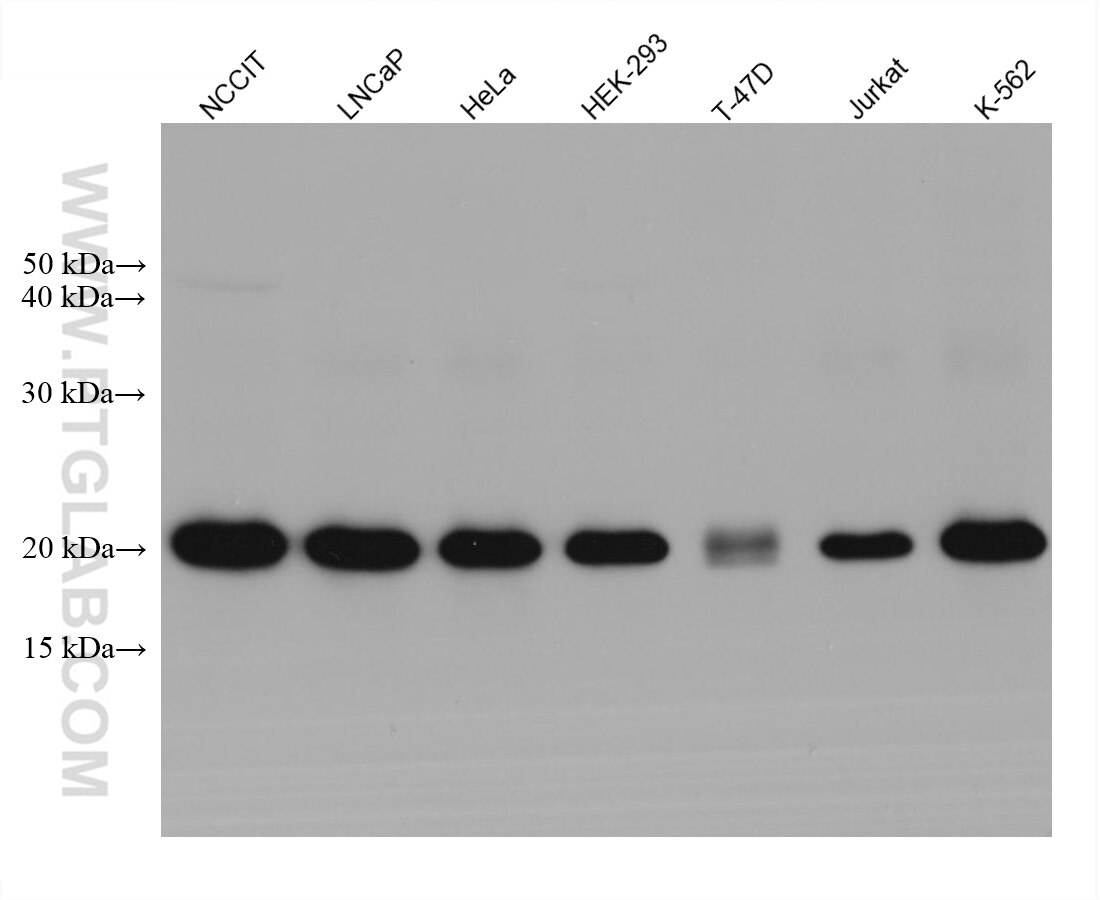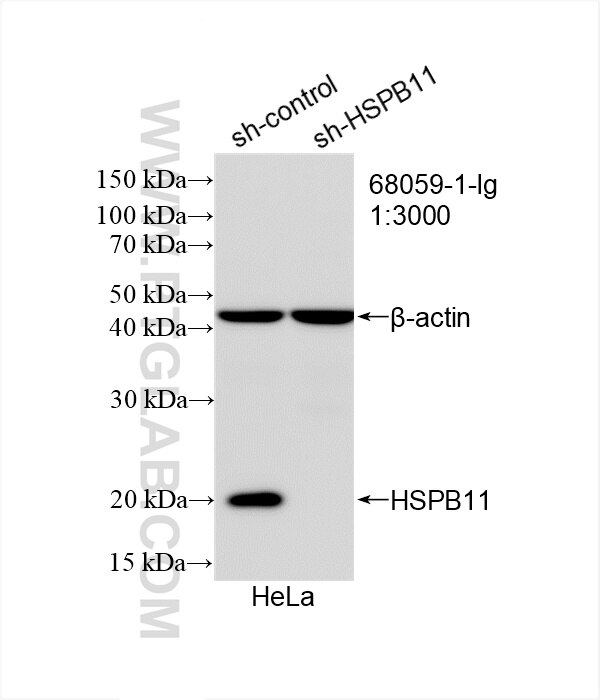Validation Data Gallery
Tested Applications
| Positive WB detected in | NCCIT cells, HeLa cells, LNCaP cells, HEK-293 cells, T-47D cells, Jurkat cells, K-562 cells |
Recommended dilution
| Application | Dilution |
|---|---|
| Western Blot (WB) | WB : 1:5000-1:50000 |
| It is recommended that this reagent should be titrated in each testing system to obtain optimal results. | |
| Sample-dependent, Check data in validation data gallery. | |
Product Information
68059-1-Ig targets HSPB11 in WB, ELISA applications and shows reactivity with human samples.
| Tested Reactivity | human |
| Host / Isotype | Mouse / IgG2a |
| Class | Monoclonal |
| Type | Antibody |
| Immunogen | HSPB11 fusion protein Ag8804 相同性解析による交差性が予測される生物種 |
| Full Name | heat shock protein family B (small), member 11 |
| Calculated molecular weight | 144 aa, 16 kDa |
| Observed molecular weight | 20 kDa |
| GenBank accession number | BC005245 |
| Gene Symbol | HSPB11 |
| Gene ID (NCBI) | 51668 |
| RRID | AB_2918800 |
| Conjugate | Unconjugated |
| Form | Liquid |
| Purification Method | Protein A purification |
| UNIPROT ID | Q9Y547 |
| Storage Buffer | PBS with 0.02% sodium azide and 50% glycerol pH 7.3. |
| Storage Conditions | Store at -20°C. Stable for one year after shipment. Aliquoting is unnecessary for -20oC storage. |
Background Information
HSPB11 (Heat shock protein beta-11), also known as IFT25, was originally identified as a small heat shock protein. Recently it has been identified as a component of IFT complex B. It has been demonstrated that IFT25 is not required for ciliary assembly but is required for proper Hedgehog signaling, which in mammals occurs within cilia. Cilia lacking IFT25 have defects in the signal-dependent transport of multiple Hedgehog components and fail to activate the pathway upon stimulation.
Protocols
| Product Specific Protocols | |
|---|---|
| WB protocol for HSPB11 antibody 68059-1-Ig | Download protocol |
| Standard Protocols | |
|---|---|
| Click here to view our Standard Protocols |

